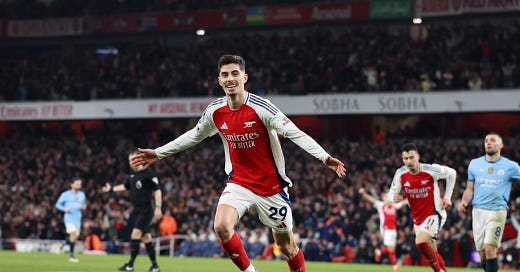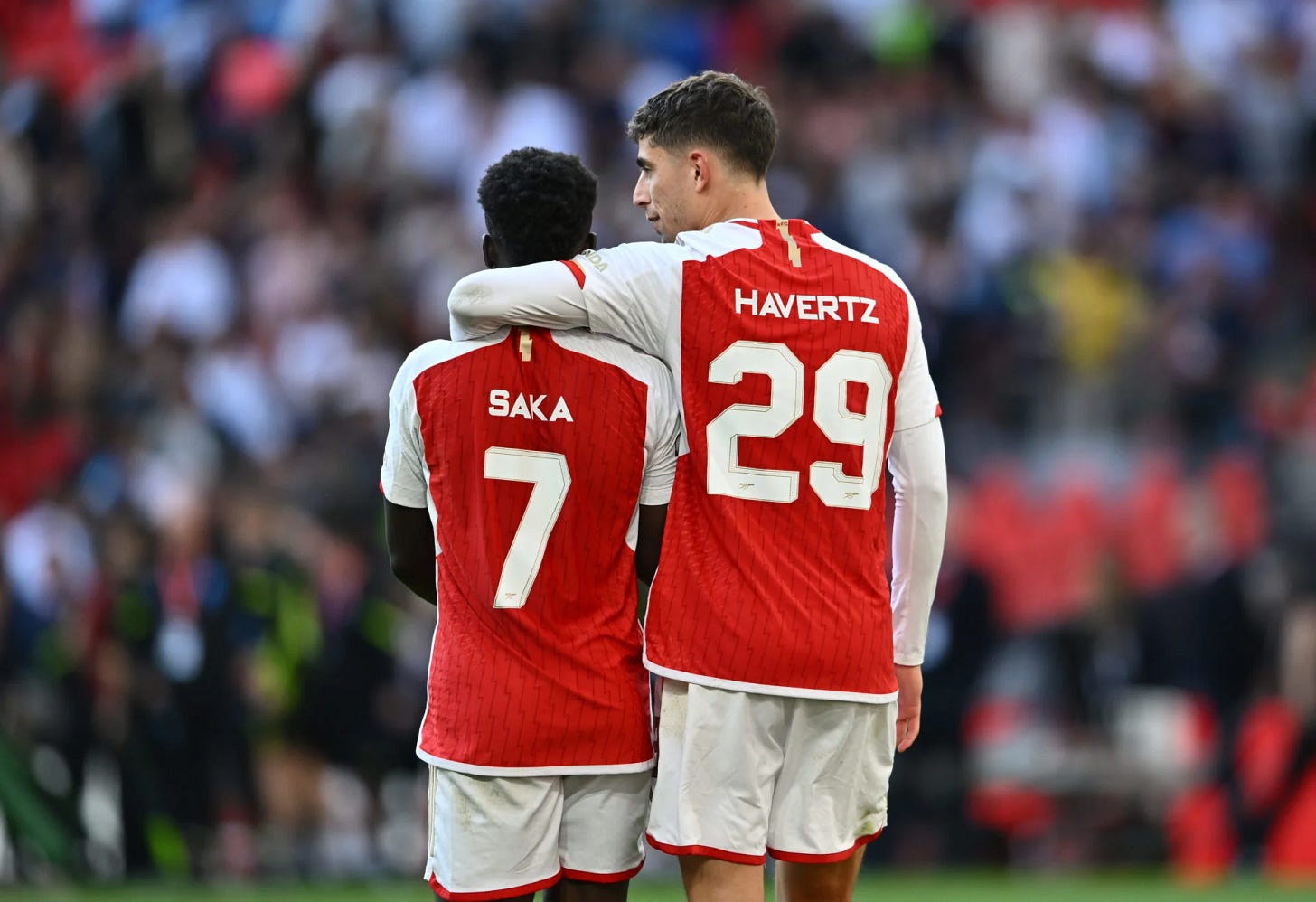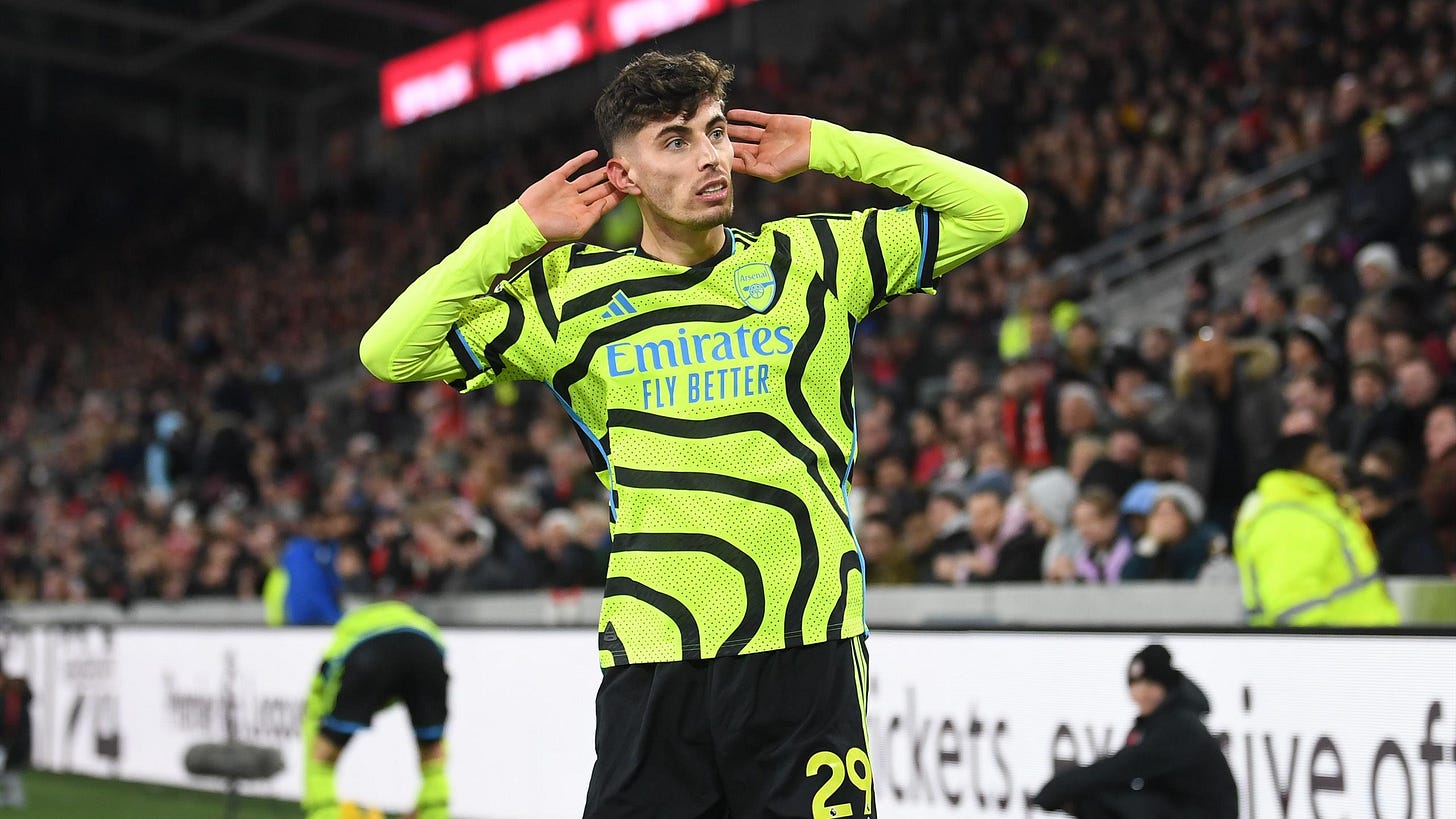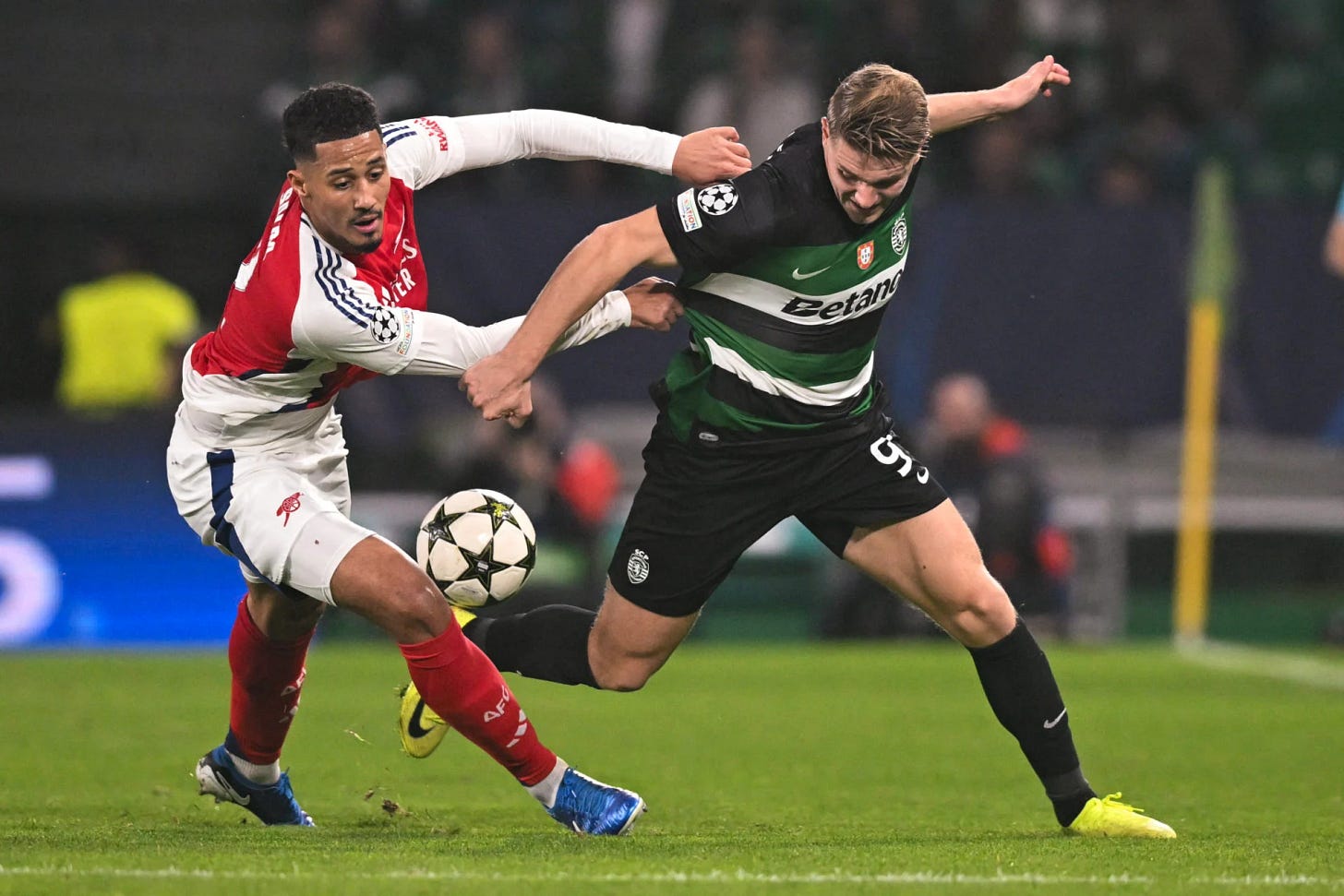The Fall Kai
Arsenal desperately need another centre forward, and few would benefit from a new arrival as much as Kai Havertz.
Kai Havertz is an eternal point of discourse. In a tough collective season, he has been emblematic (and one of the primary victims) of Arsenal’s failure to build on the 23/24 campaign, with a series of questionable decisions leaving another summer of big conversations. Even after a brilliant end to last season for Havertz, the struggles of 24/25 across the board mean another summer of debate lies ahead.
The German is far from alone in this Arsenal side in having struggled for form and consistency this season, though the constant discussion of Arsenal’s need for a centre forward puts much of the focus on him. Regardless, Arsenal needed a centre forward last summer, and they need one this summer — and that would be true even if Havertz were a reincarnation of Thierry Henry.
From September, Martin Ødegaard’s two-month injury absence left Arsenal without their only central creator for two months. Not long after his return, Bukayo Saka took the Norwegian’s place on the treatment table, joined shortly after by Havertz himself. In the 46 days between Saka’s injury and Havertz’s last game of the season in early February, Arsenal played 12 games, with Havertz featuring in 10 (nine starts, eight of which were full matches). At that point, they sat six points from the top of the table, with plenty of season left to go.
Discussing Havertz drags people towards extremes. With the two players on whom Arsenal’s attacking setup is built missing, Havertz played close to every minute, visibly being dragged to (and beyond) his physical limit. Were so many emotional dies not already cast, maybe he would get a little more credit for his role in keeping the team competitive in that time. Alas.
Havertz is not a player without flaws. But Arsenal’s form and absentees have shone a light on those flaws in a way that a functioning, prepared Arsenal mitigated comfortably in the latter half of the 23/24 season, and that real support for him can do quite easily again.
The creative crater that came with Ødegaard’s absence amplified Havertz’s difficulties with generating his own shots and, in old-school terms, just putting his foot through it. Similarly, with minimal chances being created, finishing efficiency becomes more essential. The subsequent loss of Saka brought forth the same issues, but with an ever more tiring Havertz not showing the best of himself, but remaining essential due to the sub-standard quality of alternatives.
A key error Arsenal made in summer 2024 was their apparent belief that Gabriel Jesus could be relied on at all for consistent form and fitness. Although he appeared to be finding his way somewhat just before his ACL injury, it mustn’t be forgotten that his previous uninspiring, low-impact showings were a significant reason as to why Havertz and Saka played as much as they did.
At the same time, Gabriel Martinelli struggled for form, and Leandro Trossard struggled even more. The less said about Raheem Sterling the better. In reviewing the 2024 summer transfer business, the decision not to replace Eddie Nketiah — who made 10 league starts and 17 appearances off the bench the previous season — was a baffling one, even though Nketiah was not at the level required.
All of those issues served equally to increase the team’s reliance on Havertz’s combination play, understanding with teammates, aerial prowess, intelligent movement and pressing, and unending hard work. But ultimately, it is understandable that frustrations build when a team is desperate for goals and cannot get them from its primary striker.
This tough season means many have forgotten that Arsenal, when fit and firing, are an exceptional team, and Havertz is a significant figure in them being so. He is absolutely capable of being a regular starter in a title-winning team, and the need for another centre forward is far more a question of numbers than of a gaping quality gap in the squad.
The 23/24 season showed what Havertz can bring to a system in good working order. He is not a striker who can take games by their scruff and turn them through force of will. He can, though, help to make a good setup even better. He can be a key contributor in a varied, unpredictable attack that can pick its way through teams or push their way through the door with sustained pressure.
That ability to turn games individually, though, is one reserved for the best of the best. For Arsenal, probably the only one even close to being attainable is Alexander Isak — and even then, it’s extremely unlikely given the suggested fee.
Every other target carries some level of risk. But assuming the club address the other needs in the squad – a big assumption, admittedly – and that Havertz recovers from injury without too much issue, Arsenal have room to take that risk. Proper squad building negates the sharp necessity of the centre forward who can bail teams out of jams, even if they would obviously significantly raise the overall standard and be a wonderful thing to have.
Rather than judge a striker on loose notions of ‘quality’, it makes more sense to look at where Arsenal get lost or blunted in attack. Beyond the fact that Jesus was a shadow of his former self even before his fresh injury, it was also of little help that he shares similar weaknesses with Havertz, and the qualities they each lack are also missing across most of the rest of the team.
When Arsenal hit walls, they turned to Jesus. Like Havertz, he takes too few shots, but is a worse finisher and an even worse striker of the ball, albeit with better dribbling. No one else in the squad plugs those gaps. The closest is Trossard, but his own difficult year and increasing age make it hard to see him returning to the level he needs to in order to remain a serious option for the club. What Trossard does possess is excellent ball-striking and a real determination above all else to score goals, which have been invaluable for big spells at his time at Arsenal, and they must seek to replace.
In an overfilled calendar, notions of ‘first choice’ are misguided. No club competing at the top level may ever have a fully fit squad again. Those players need serious, viable alternatives and competitors, not backups who do the same things but worse. Havertz is an acute case – ostensibly a versatile player, he has been immovable at centre forward owing to poor depth and the squad’s lack of variety in qualities.
Who could fill that gap remains to be seen. Long-standing rumour suggests Benjamin Šeško, or perhaps Hugo Ekitike, but more recent chatter has brought Viktor Gyökeres back to the table. Gyökeres is an interesting option. His goal records in the Championship and the Primeira Liga are outstanding, and even a short viewing of him shows a striker obsessed with scoring goals, and able to make them happen for himself. Even during Sporting CP’s struggles since Ruben Amorim left for Manchester United, Gyökeres has managed to net 18 goals in all competitions.
He turns 27 in the summer, and coming from Portugal does make him a risk, but he is also probably the readiest of the three mentioned to hit the ground running. With Arsenal in ‘win now’ mode, he could be ideal. Šeško and Ekitike will be 22 and 23, respectively, at the start of next season, each with huge room to grow, but neither has yet scored more than 15 in a league season. They have plenty of time to do it, but both would be project strikers who can be expected to require some time to settle.
Whoever Arsenal sign, as simple as it sounds, the focus must be on bringing in the qualities lacking in the team. Where Havertz at his best is a big asset in helping Arsenal to unpick opposition defences’ locks, but sometimes the best lock-picking tool is a hammer. That is what Arsenal need to be looking for now.
Any potential new signing regardless, Havertz will probably find himself the subject of much debate next season – perhaps that is just his lot in life. While frustrating at times, he is a valuable player whose efforts cannot be understated in keeping Arsenal in a strong position through a turbulent season before his injury. Havertz is a clear favourite of Mikel Arteta’s, and the manager’s job now is to give him the support to shine again.
If Arsenal do finally add a serious alternative to him at centre forward, they stand a far better chance of bringing him back to his best.








As a Havertz fan love this write up